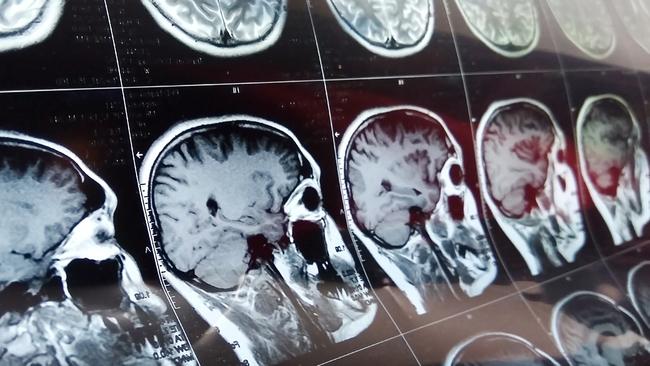Unnoticeable concussion symptoms could delay return to play
The effects of concussion can persist after symptoms have subsided, new research has found. The breakthrough could change how soon athletes return to play.

Victoria
Don't miss out on the headlines from Victoria. Followed categories will be added to My News.
Melbourne researchers have found concussed grassroots footballers returning to play can experience a “prolonged elevation” of damaged brain cells without noting symptoms.
A newly published study collected blood samples from amateur Australian football players in preseason, and for players diagnosed with concussion during match play, again at multiple time-points post-concussion.
Researchers from Monash University, Melbourne University, and The Alfred hospital focused on proteins found in the blood that indicate damage to brain cells.
They found symptoms were apparent at two-days, but not at six and 13-days post-concussion.
However, elevated levels of blood-based protein “biomarkers” of brain cell damage remained apparent at 13-days.
“As such, our findings of blood biomarker changes in males beyond two-days provides further evidence that neurobiological recovery may take longer than clinical recovery,’’ the report said.
Until now, conventional imaging of the brain following concussion showed no structural difference to explain the symptoms or damage.
The study said self-reported concussion symptoms were often used for return-to-play advice but the new findings could cause a rethink.
“Despite increasing awareness of the risks associated with sports-related concussion, the identification and management of this condition remains notoriously difficult,’’ it said.
“Blood biomarkers have potential to provide reliable and sensitive tests to aid in … diagnosis and determination of brain recovery.”
The Monash researchers, led by Dr Stuart McDonald and Associate Professor Sandy Shultz, are now conducting follow-up studies to determine exactly how these new blood tests can be used to improve concussion management.
In 2019 a world-first study by the Florey Institute of Neuroscience and Mental Health, partly funded by the AFL, found a common pattern in brain connections in the month after a head knock.
Footy great Graham “Polly” Farmer was the first Australian rules player diagnosed with chronic traumatic encephalopathy — the crippling neurological disorder caused by repeated head knocks.
The Herald Sun last year revealed St Kilda great Danny Frawley had also suffered from CTE.
Medical experts believe the devastating condition is caused by repeated concussive or sub-concussive knocks over many years.
In recent years, former Essendon and Geelong ruckman John Barnes detailed life-changing concussion while mark of the century hero Shaun Smith revealed a crippling toll of repeated concussion during his AFL career.
Last year concussion crusader Peter Jess said the AFL’s “continual refusal to accept the causal relationship between repetitive collisions and long-term neurological impairment” has been exposed.


